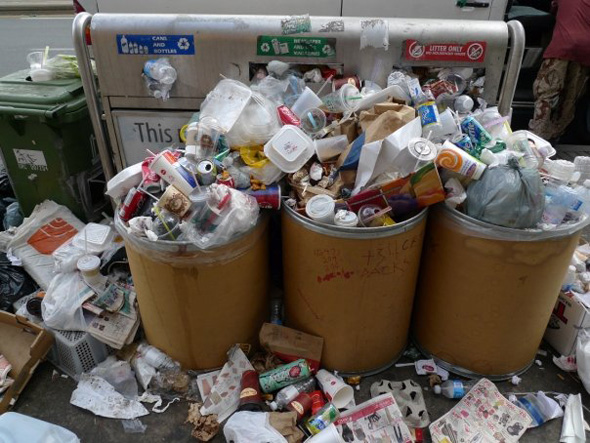
Efficient Home Waste Disposal: Minimizing Dumped Items
Managing home waste is a fundamental aspect of maintaining a clean and sustainable living environment. Efficient home waste disposal not only contributes to a healthier living space but also plays a crucial role in environmental conservation. In this article, we explore the significance of minimizing dumped items and adopting responsible waste disposal practices.
Understanding the Impact of Dumped Waste
Dumped waste, whether in public spaces or improperly discarded in residential areas, poses significant environmental and health risks. Common dumped items include household waste, electronics, furniture, and construction debris. Understanding the impact of dumped waste is essential for individuals and communities to realize the importance of proper disposal methods.
Environmental Consequences of Improper Waste Disposal
Dumped waste can result in various environmental consequences, such as soil and water contamination, air pollution, and harm to wildlife. Toxins from dumped items can leach into the soil, affecting plant and aquatic life. Moreover, the visual impact of dumped waste diminishes the aesthetic value of surroundings and may deter people from utilizing public spaces.
Responsible Disposal Methods for Household Waste
Minimizing dumped items starts with adopting responsible disposal methods for household waste. Individuals can separate recyclables from non-recyclables, ensuring that materials like paper, plastic, and glass are appropriately recycled. Composting kitchen waste is another eco-friendly approach, reducing the organic waste sent to landfills. Municipal recycling programs and waste collection services provide convenient avenues for proper disposal.
E-Waste Recycling: Managing Electronics Responsibly
Electronic waste, or e-waste, poses a particular challenge due to its toxic components. Responsible e-waste disposal involves recycling or donating old electronics instead of discarding them. Many electronics retailers and local recycling centers offer programs to collect and recycle e-waste, preventing the environmental hazards associated with improper disposal.
Donation Initiatives to Reduce Unwanted Items
One effective strategy to minimize dumped items is to participate in donation initiatives. Items that are no longer needed but still in good condition can find new homes through charitable organizations or community-driven projects. Donating furniture, clothing, and household items not only reduces waste but also supports those in need.
Bulk Waste Disposal: Scheduled Pickup Services
For larger items such as furniture and appliances, many municipalities provide bulk waste disposal services. Residents can schedule pickups or drop off bulk items at designated locations. Proper utilization of these services prevents dumped bulk items in public spaces and ensures their environmentally responsible disposal.
Community Cleanup Initiatives: Engaging Locally
Community cleanup initiatives play a vital role in minimizing dumped waste. Local organizations, schools, and residents can organize regular cleanup events to remove dumped items from public spaces. These initiatives not only contribute to a cleaner environment but also foster community pride and a sense of shared responsibility.
Educational Campaigns on Responsible Disposal
Raising awareness through educational campaigns is essential for encouraging responsible waste disposal practices. Governmental bodies, environmental organizations, and community leaders can collaborate on campaigns that emphasize the importance of proper waste management. Home Dumped Waste provides resources to educate individuals on responsible disposal methods, fostering a collective commitment to waste reduction.
Legal Consequences of Improper Waste Disposal
Understanding the legal consequences of improper waste disposal serves as a deterrent to dumping activities. Many jurisdictions impose fines and penalties for illegal dumping. By enforcing these regulations, authorities aim to discourage irresponsible disposal practices and promote adherence to proper waste management protocols.
Conclusion: A Collective Effort for a Cleaner Future
In conclusion, minimizing dumped items is a collective effort that requires individual commitment, community engagement, and a broader societal shift towards responsible waste disposal. By adopting eco-friendly practices, participating in donation initiatives, and engaging in community cleanup efforts, individuals can contribute to a cleaner and more sustainable future. Visit Home Dumped Waste for insights into responsible waste management, empowering individuals to make a positive impact on their living spaces and the environment.





